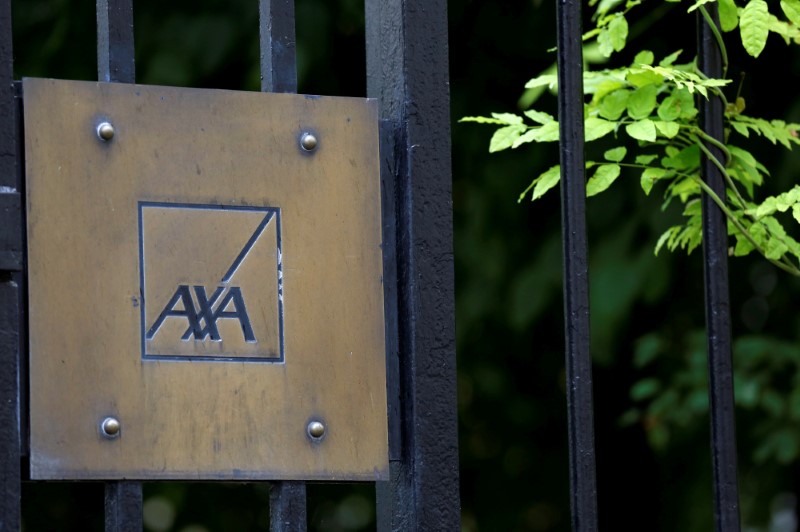By Ross Kerber
BOSTON (Reuters) - Before New York's famed 21 Club steakhouse drew attention in November for hosting Donald Trump, the wealthy U.S. president-elect, it quietly fed other public representatives: trustees of Paris-based AXA SA (PA:AXAF) investment funds.
The trustees - board members tasked with overseeing AXA funds - had events there and at other ritzy spots, legal records show. A 2011 holiday party at a Del Frisco's restaurant cost $25,775, a $1,000 average for each of roughly 25 people present.
"The wine was very good," a trustee recalled of one meal.
The trustees' dining experiences emerged in a federal case decided in August. Investors including a teacher and a retired police officer accused the firm of collecting excessive fees, a charge the firm denied.
U.S. District Judge Peter Sheridan sided with AXA in his 146-page decision, but he wrote the suit had prompted a "more scrupulous and rigorous" review of board expenses. One result was to reimburse investors for some of the meal costs.
In courts across the land, investors are subjecting mutual fund boards to greater scrutiny. Trustees, often paid hundreds of thousands of dollars a year, are under pressure to prove they have stood up for shareholders in an industry that has $16 trillion under management.
The lawsuits accuse fund boards of missteps such as failing to scrutinize fees or pass along to investors economies of scale as their funds grow with rising markets. The claims illuminate the long obscure role of fund trustees, sometimes known as directors.
Despite their compensation and influence, at many fund families these individuals rarely appear before investors and face few official qualification requirements. Many are current or retired executives, attorneys or academics, much the same as at large publicly traded companies.
Defendants include large fund managers like BlackRock Inc (N:BLK) and Pacific Investment Management Co, or Pimco. The fund managers deny wrongdoing. An AXA spokesman declined to comment.
FEES A SENSITIVE TOPIC
In theory, mutual fund trustees can demand lower fees on the funds or fire the managers who choose the funds' investments. But firings, which investors could see as disruptive, hardly ever happen.
A common concern is that the boards are more focused on following technical rules than looking out for shareholder interests, said Stephen Davis, a senior fellow at the Harvard Law School Program on Corporate Governance.
Fees are a sensitive topic for many actively managed mutual funds, which are losing billions of dollars in assets to cheaper index-tracking funds. Even a small reduction in fees can make a big difference for investors who include many U.S. workers whose savings are in 401(k) retirement plans.
A 2015 Morningstar study showed that while industry assets increased by 143 percent over a 10-year period, fund fees charged to clients fell only 27 percent while industry fee revenue rose 78 percent, showing companies benefiting from the gains more than their investors.
LAWSUITS AGAINST BLACKROCK, PIMCO
In one suit, in federal court in Trenton, New Jersey, plaintiffs accuse BlackRock units of benefiting too much as assets of its Global Allocation Fund
U.S. District Judge Freda Wolfson last year denied a BlackRock motion to dismiss, writing that plaintiffs at least had raised enough doubts about fund trustees that there remained "sufficient allegations that allow for an inference of rubber-stamping by the Boards."
BlackRock defended its boards of trustees. A BlackRock spokesman wrote via email that Global Allocation is priced competitively, adding, "The suit is without merit and we intend to vigorously defend against the action."
A judge has asked both sides for reports on the discovery process by Jan. 19.
A suit in federal court in Seattle compares Pimco's well-known $78 billion Total Return fund
The plaintiff cited how Pimco charged holders of Class A shares of Total Return 0.85 percent of fund assets, while investors were charged just 0.53 percent of fund assets to own a comparable Harbor Bond Fund share class.
The plaintiff claimed Pimco trustees "have been subverted by defendants and no longer serve in their 'watchdog' role" and cited the trustees' generous pay.
Pimco argues its board follows a rigorous process and called the comparison to Harbor Bond Fund inapt because its in-house funds can require it to perform additional work and assume additional risks. Last year U.S. District Judge Ricardo Martinez denied a Pimco motion to dismiss the case, currently awaiting trial.
A Pimco spokeswoman declined to comment.
Some complaints against directors have been knocked down. In a case against Hartford Funds in Camden, New Jersey, U.S. District Judge Renee Marie Bumb likened claims that Hartford's fund board allowed excessive fees to "armchair quarterbacking and captious nit-picking." Closing arguments in the case are set for January.
But elsewhere even unsuccessful actions have brought board critiques.
In Los Angeles, U.S. District Judge Gary Feess in 2009 dismissed a challenge to fees at American Funds but wrote the board's oversight process "seems less a true negotiation and more an elaborate exercise in checking off boxes and papering the file."
An American Funds spokesman said the company in response provided trustees more information about its approach to compensation. Directors were unavailable to comment, he said.

For a graphic on fund board compensation, click http://fingfx.thomsonreuters.com/gfx/rngs/USA-FUNDS-FEES/010031442H3/index.html